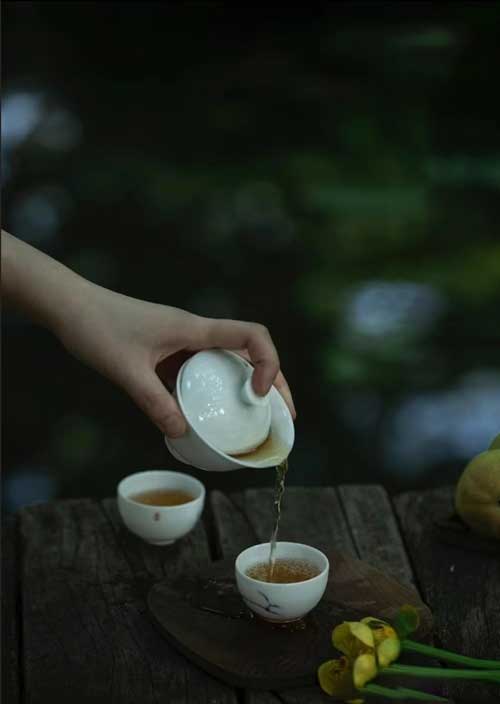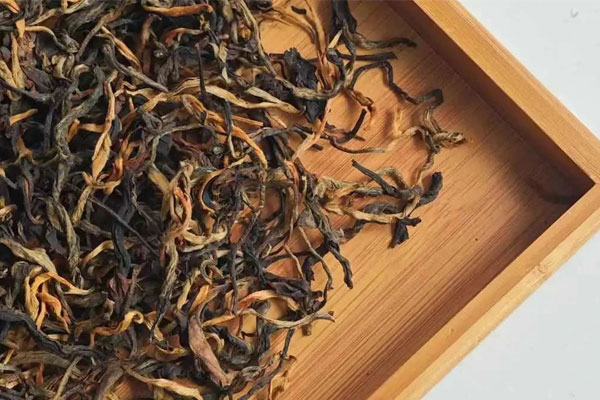Many tea lovers, despite their love for tea, have unknowingly developed some bad habits. A reminder: Drinking tea is supposed to be healthy, but the wrong way can actually harm your health.
Take a look at these four common tea drinking mistakes below and see how many you've fallen into.
01. Overindulgence: The Hidden Dangers of Excessive Tea Drinking
An avid tea lover recently had a physical examination when his doctor discovered abnormal kidney function and a significantly elevated uric acid level. This result shocked him: Isn't tea drinking healthy? How could it be harmful?
While the caffeine and tea polyphenols in tea are beneficial, excessive consumption can put a heavy strain on the kidneys. More seriously, the tannic acid in tea reduces iron absorption. Long-term excessive tea drinking can lead to iron-deficiency anemia. As the old saying goes, too much is as bad as too little. It's recommended to limit daily tea consumption to 3-4 cups, approximately 600-800ml, and avoid strong tea. Special groups such as pregnant women, those with anemia, and those with renal insufficiency should be especially cautious in controlling their daily tea intake.

02. Drinking Tea on an Empty Stomach: The Invisible Killer of the Gastric Mucosa
Many people habitually drink a few cups of green tea on an empty stomach in the morning to refresh themselves. In fact, this practice is very harmful to gastric health. When our stomachs are empty, gastric acid secretion is at its peak, and tea polyphenols directly irritate the gastric mucosa. Over time, this can easily lead to gastritis or even gastric ulcers.
This is especially true for cold teas like green tea and raw Pu'er tea. Drinking them on an empty stomach is like pouring cold water on the stomach. Clinical data shows that approximately 40% of patients with a history of gastric problems have a long-term habit of drinking tea on an empty stomach.
To avoid this, it's recommended to have a snack before drinking tea, or wait 30 minutes after a meal. People with digestive problems are better suited to warm teas like fully fermented black tea and ripe Pu'er tea.

03. Replacing Water with Tea: A Heavy Burden on the Kidneys
Many tea lovers habitually drink tea continuously from morning to night, believing it to be both refreshing and beneficial for health. However, this habit actually carries hidden health risks.
The caffeine in tea has a diuretic effect. Long-term use of tea instead of water can lead to hidden dehydration and increase the metabolic burden on the kidneys. This not only affects fluid balance but can also lead to elevated uric acid and electrolyte imbalances.
It's recommended to maintain a daily water intake of 1500-2000ml, with tea making up no more than one-third of your total daily fluid intake. It's especially important to ensure adequate hydration after exercise or in hot weather.

04. Scalding Tea: Chronic Esophageal Burns
"Tea should be drunk while it's hot"—do you think so too? This old belief needs to be changed! The World Health Organization has long classified hot beverages above 65°C as a Class 2A carcinogen. Simply put, hot tea above 65°C can burn the esophageal mucosa. Long-term consumption can lead to repeated damage, significantly increasing the risk of esophageal cancer.
It's best to let freshly brewed tea cool for 3-5 minutes, allowing it to cool below 60°C before drinking. A simple way to test the temperature is to touch the rim of the cup with your lips. If it feels warm but not scalding, it's the optimal drinking temperature. When using a thermos, pay even more attention to temperature control to avoid keeping the tea at a high temperature for extended periods.
Don't sacrifice your health for the thrill of a "hot mouth."

After reading this, isn't it time to reevaluate your tea drinking habits?
The adjustments are actually quite simple:
- Limit your total intake
- Avoid empty stomachs
- Combine tea and water
- Drink slowly and at a moderate temperature
Developing good habits is the key to truly benefiting your health.

%20--%3e%3c!DOCTYPE%20svg%20PUBLIC%20'-//W3C//DTD%20SVG%201.1//EN'%20'http://www.w3.org/Graphics/SVG/1.1/DTD/svg11.dtd'%3e%3csvg%20version='1.1'%20id='图层_1'%20xmlns='http://www.w3.org/2000/svg'%20xmlns:xlink='http://www.w3.org/1999/xlink'%20x='0px'%20y='0px'%20width='256px'%20height='256px'%20viewBox='0%200%20256%20256'%20enable-background='new%200%200%20256%20256'%20xml:space='preserve'%3e%3cpath%20fill='%23FFFFFF'%20d='M194.597,24.009h35.292l-77.094,88.082l90.697,119.881h-71.021l-55.607-72.668L53.229,232.01H17.92%20l82.469-94.227L13.349,24.009h72.813l50.286,66.45l58.148-66.469V24.009z%20M182.217,210.889h19.566L75.538,44.014H54.583%20L182.217,210.889z'/%3e%3c/svg%3e)




